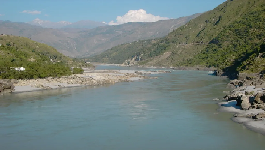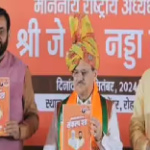India issued a formal notice on 30 August 2024 to Pakistan stating its proposal to review and modify the 1960 Indus Waters Treaty. This step marks the growing impatience of India over the treaty especially due to Islamabad’s tough approach to issues related to rivers crossing borders.
Under Article XII (3) of the Treaty, a modification is possible through a ratified agreement between both countries. It is mentioned in a ‘notification for amendment’ that India sent to Pakistan on January 25, 2023.
India Calls For Negotiations
India has requested Pakistan to begin government-to-government negotiations to revisit the treaty. The reason is historical changes in circumstances since the treaty was entered.
The key issues include:
- New population demographics
- The urgent need to accelerate the development of clean energy to meet the emission targets
- The impact of the continued cross-border terrorism in Jammu and Kashmir region
What Is Indus Waters Treaty? Why Is India Seeking Modification?
The Indus Waters Treaty was signed on September 19, 1960, after nine years of negotiation and was facilitated by the World Bank. It is one of the most resilient agreements between India and Pakistan to date. IWT is a water-sharing agreement between India and Pakistan. It comprises of:
- Three Eastern Rivers – Ravi, Beas, and Sutlej and their tributaries
- Three Western Rivers – Indus, Jhelum, and Chenab and their tributaries.
India is responsible for controlling about 20% of the total water system and Pakistan gets 80%. But in a few years, it has been subjected to growing pressure as bilateral ties deteriorated with mutual tensions over terrorism and the J&K issues.



